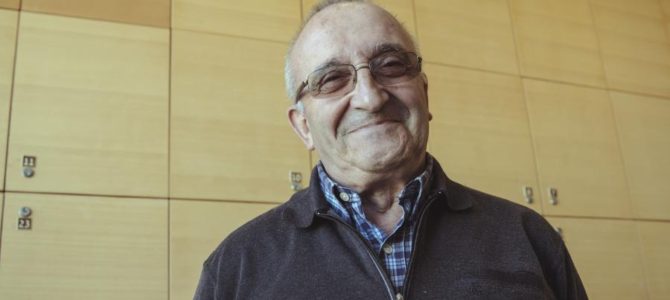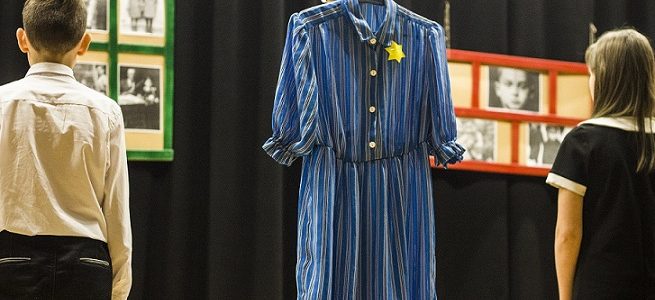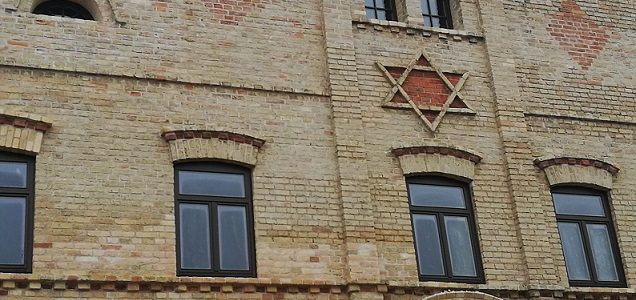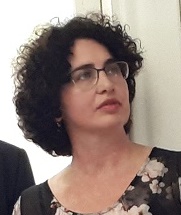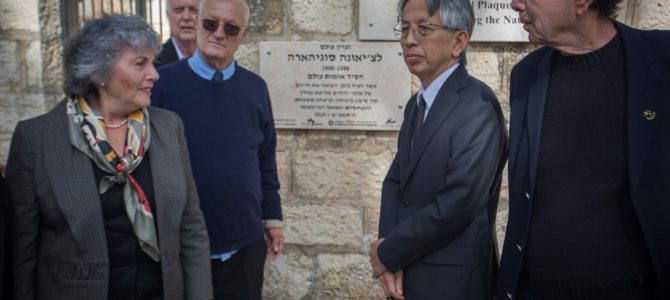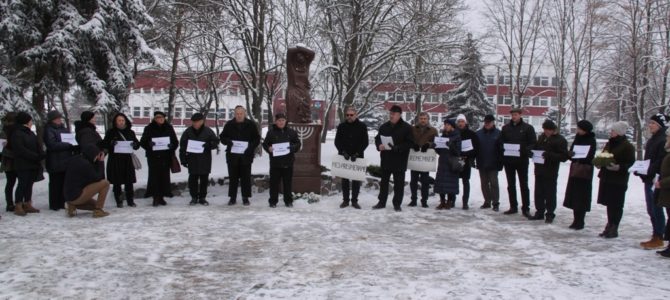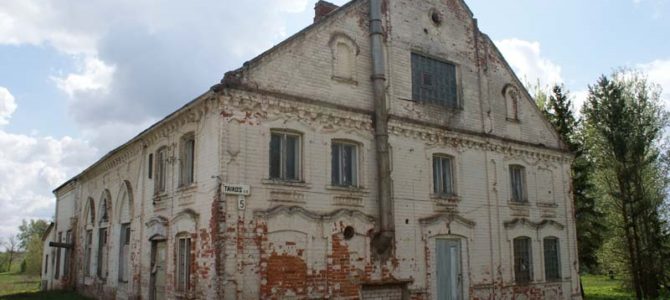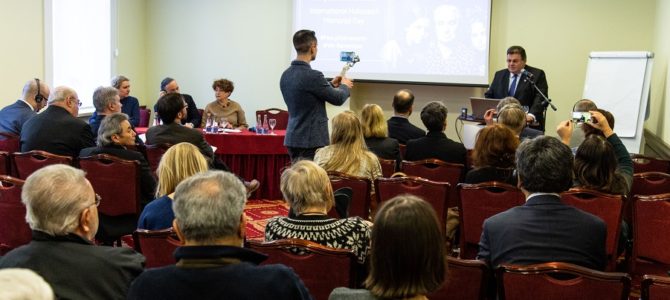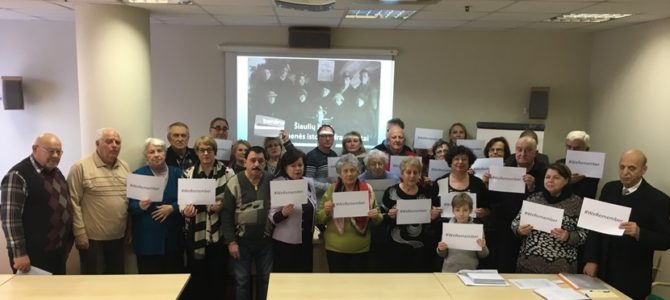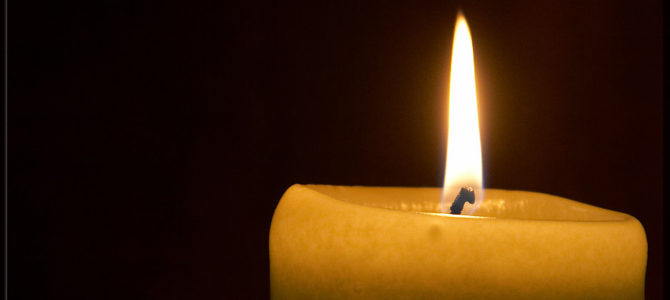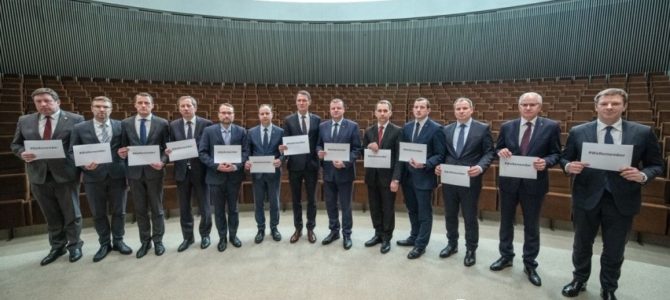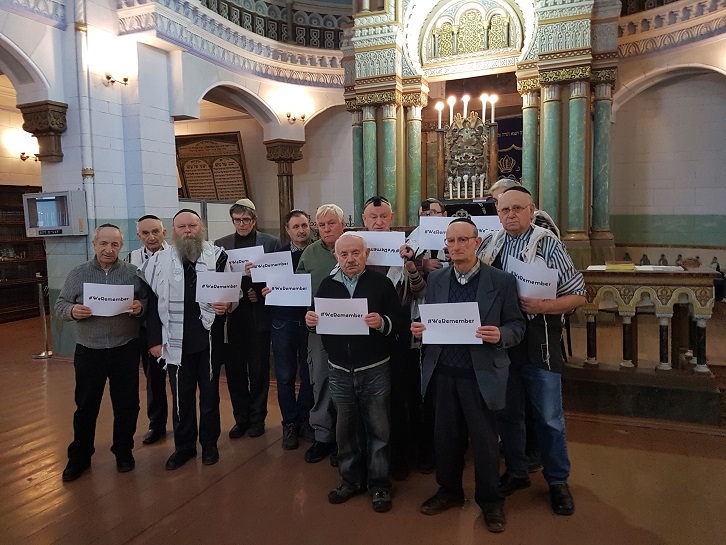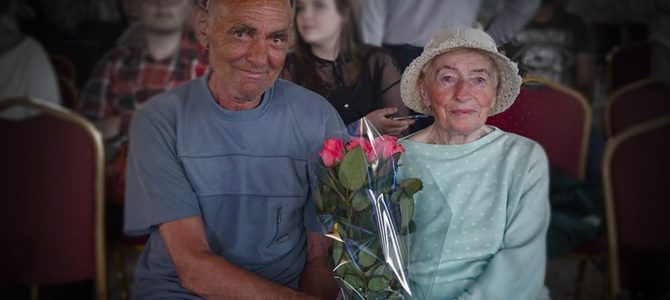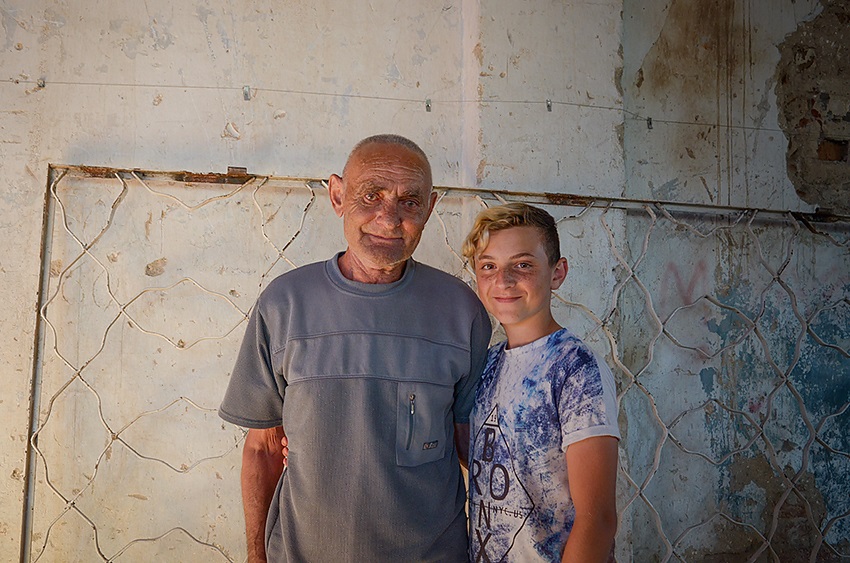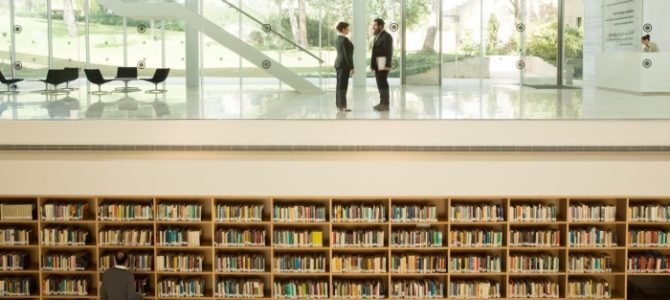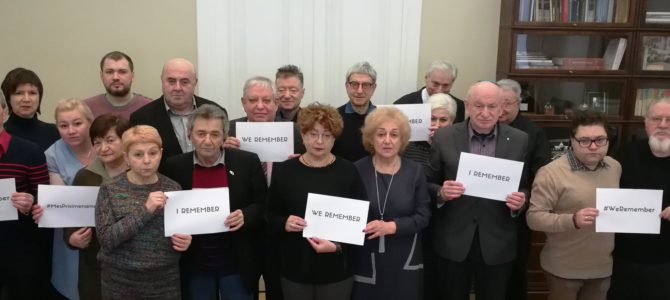by Kostas Kajėnas
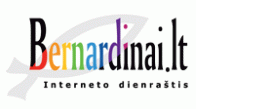
Since his birth Romualdas Jakubas Veksleris-Vaškinelis was raised Catholic and grew up to become a Catholic priest. He discovered later he was Jewish and travelled to Israel where he met his ultra-Orthodox relatives for the first time. The return to his roots was difficult. On the one hand there was the joy of discovering them, on the other: a confrontation on the rights of Jews to move to Israel.
The unusual life of this person with two names and two surnames began in World War II. He was born in Švenčionys, Lithuania, and became the only person in his family to survive the Holocaust. The infant survived because he was rescued by a Polish couple, Piotr and Emilia Waszkinel, who accepted him into their household when his parents Jakub and Batya Veksler asked them to during the destruction of the Švenčionys ghetto. The Polish couple baptized him and raised him as a Catholic.
Full story in Lithuanian here.


